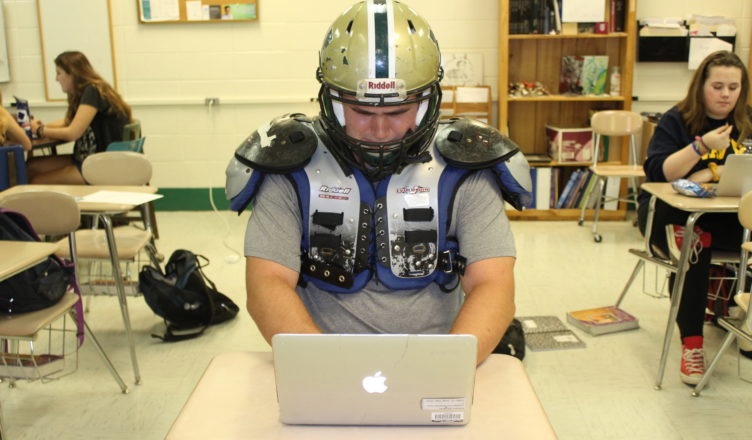Millions of people play it, thousands of people call it their job, the average player spends hundreds of dollars on it every year—fantasy football is a massive industry.
According to a study done by Sports Management Degree Hub, fantasy football is worth $18.6 billion, $6 billion more than the NFL itself. That comes out as $495 per player every year. It’s still growing too, increasing its market share by over 270 percent since 2003 and gaining millions of players. While many say fantasy football brings people together in a fun and interesting way, one of the largest pushbacks against the industry is loyalties lost to NFL teams in hopes of a fantasy win.
In fantasy football, there are “owners” of teams that draft players from every team in the NFL, and depending on how their players do, they get more points. Every week, fantasy owners’ teams are pitted against each other, and whoever scores the most points wins. Because of this scoring system, fans are starting to cheer for individual players every year to boost up their fantasy team, rather than rooting for teams.
“I know guys who will root for the opposing quarterback to put up 50 points against their favorite team, but still hope their quarterback puts up 70,” principal Justin Bartholomew said. “It definitely takes away from the team and focuses on the individual.”
These divided loyalties make it harder for NFL teams to fill up stadiums, because fewer and fewer people are cheering for the teams themselves, and being at the game doesn’t let you see how the rest of your fantasy team is doing. To combat this, the NFL has tried to display stats and highlight players who are owned in many fantasy leagues by having screens and other devices dedicated to fantasy football.
“I wish I could turn off the stats popping up on the scroll at the bottom of the screen,” Bartholomew said. “I just want to watch the game I’m watching, but then out of the corner of your eye, you see one of your guys did something good, and it draws your attention away from the game right in front of you.”
Thousands of hours are spent on fantasy football every week, with the average player spending nine hours per week consuming fantasy football per Sports Management Degree Hub. This causes many to say that the time and money wasted on the game is enough to keep them away from playing when they used to participate.
“I always forget to set my lineups,” senior Mike Barone said. “It’s too time consuming for me to want to keep playing.”
NFL teams still have very large fan bases, and they bring in millions of dollars every year, so people are still watching football to root for their favorite teams. Some players completely oppose the notion that fantasy football may make them root against their favorite team and believe that having a certain player on their team doesn’t sway their opinion at all when watching on Sundays.
“I’ll always rep my favorite team,” junior Thompson Little said. “I don’t care who they’re playing. I’ll pull for the team I want to win.”
Fantasy football can also bring people together who wouldn’t have connections otherwise. Whether it’s a family member across the nation or friends at school, fantasy football can create friendly competition between people who may not have the means necessary to develop other relationships.
“When I started fantasy football, it was with a school club in 8th grade,” junior Justin Szczypinski said. “It was a ton of fun and we got a lot closer. We talked smack the whole season, and I’ve been playing ever since.”
– By Jonathan Robbins



